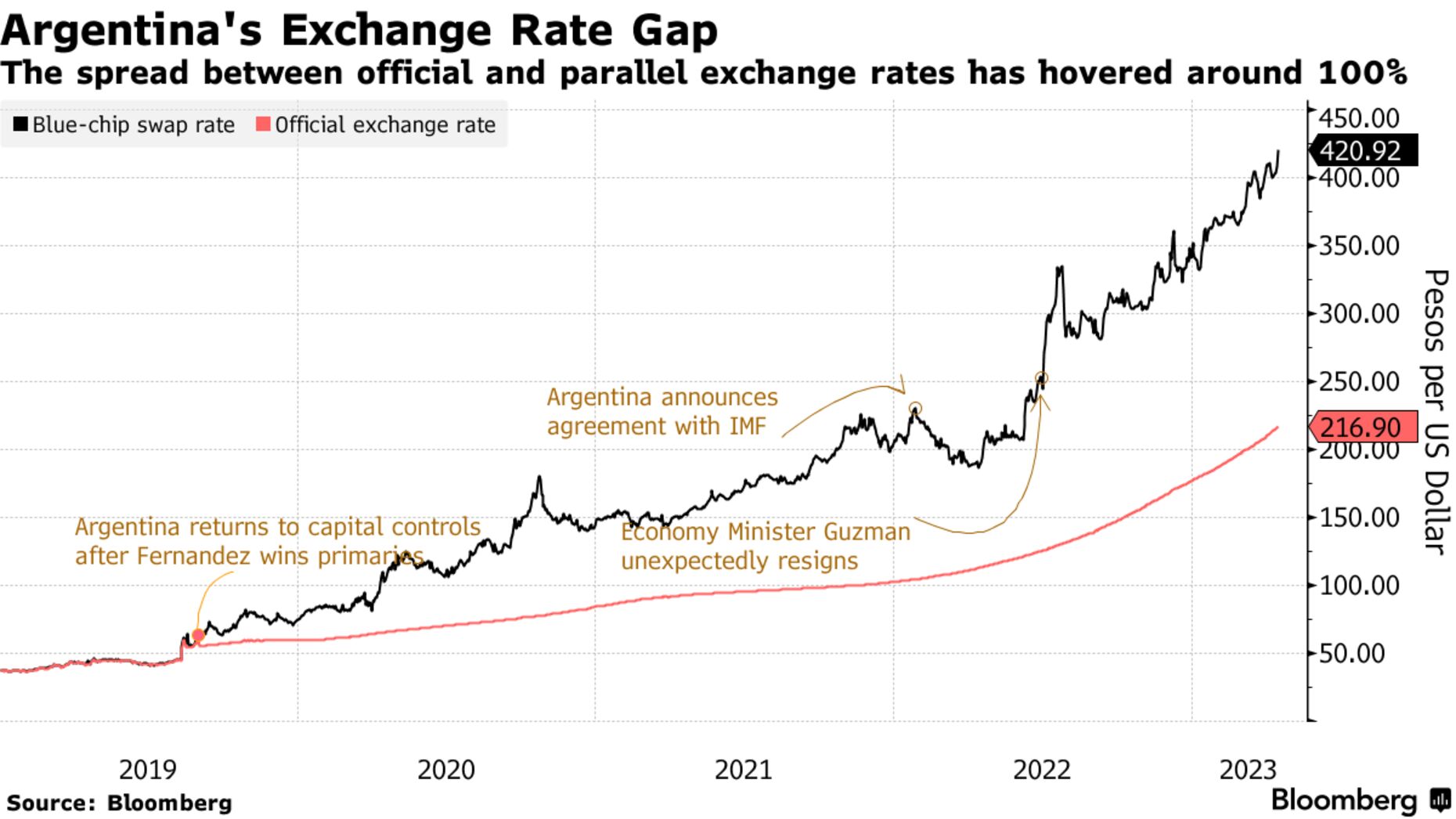Argentine Peso Slumps in Parallel Market as Inflation Soars
- Consumer prices soared 7.7% in March, more than expected
- Dollar futures imply a devaluation within next few months
Argentina’s peso tumbled as much as 4.2% in the parallel exchange market Tuesday, the most this year, after inflation surged in March and uncertainty swirled over the nation’s reworking of its $44 billion program with the International Monetary Fund.
The so-called blue-chip swap fell for a fifth day, dropping to a record 425 pesos per dollar, according to data compiled by Bloomberg.
The rate, derived by buying securities locally and selling them abroad, has slumped in the two trading sessions since the statistics agency reported that consumer prices surged 7.7% in March, the most in two decades, amid a historic drought and increased fiscal spending. What’s more, dollar futures imply the peso will tumble 115% on an annualized basis between now and the end of June, according to data from the Rofex futures exchange. That is up 15 percentage points since yesterday.
“We might be witnessing the inflation beast’s awakening, which could manifest itself in a mad grab for parallel dollars,” Portfolio Personal Inversiones analysts led by Pedro Siaba Serrate wrote in a note to clients.
Argentina’s dollar bonds due 2030 fell 0.7 cent to around 27 cents on the dollar, a three-week low.
Argentina and the IMF are going back to the drawing board on the country’s $44 billion loan program as the drought is expected to push the country into recession this year. The nation’s international reserves are also slumping, falling back to near record lows for this year, even after the Fund disbursed a $5.4 billion loan late last month.
An interest rate increase at the central bank’s meeting later this week won’t solve Argentina’s underlying macroeconomic imbalances, said Pablo Waldman, a senior strategist at Inviu in Buenos Aires.
“A rate hike from the central bank would only be useful if accompanied by other measures to change expectations,” Waldman said. “It’s important not to let money demand worsen even more, but it isn’t a measure that by itself can change the economic outlook.”


Keine Kommentare:
Kommentar veröffentlichen